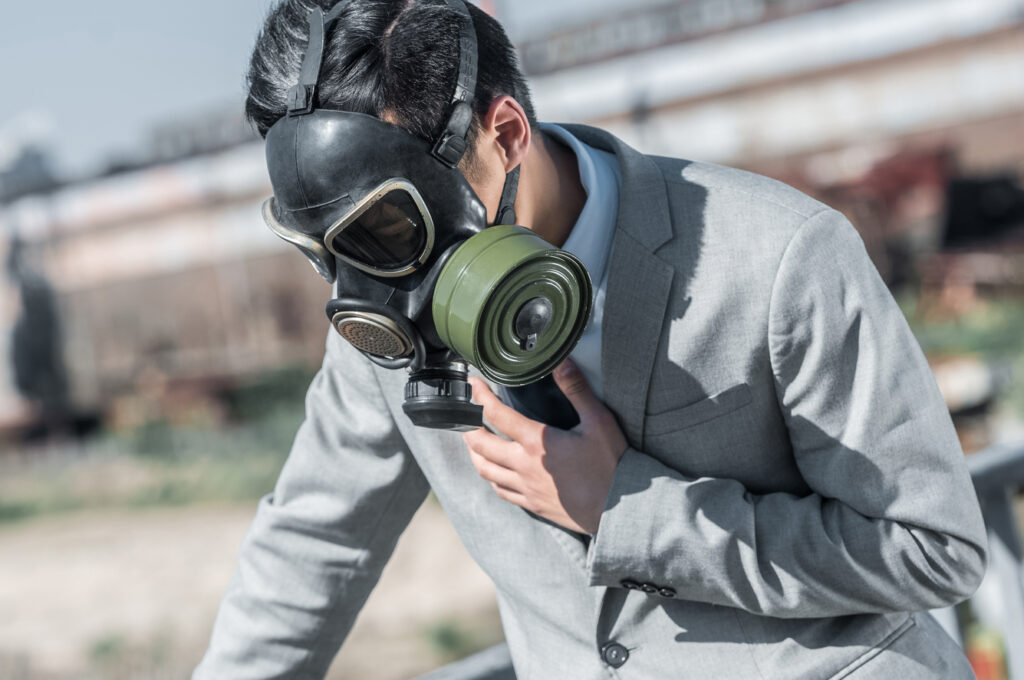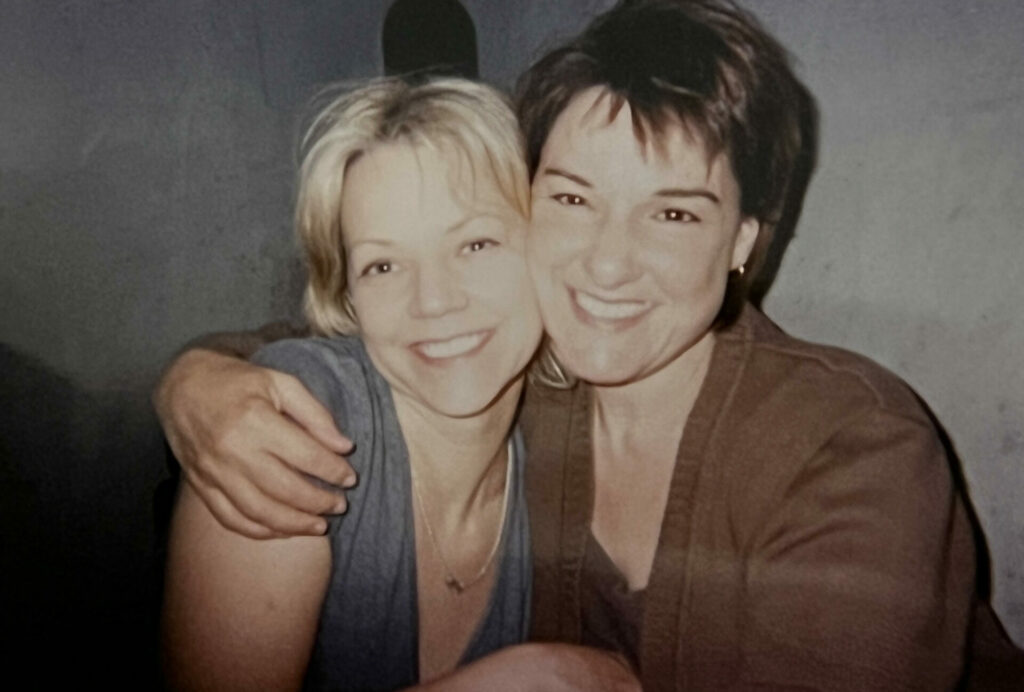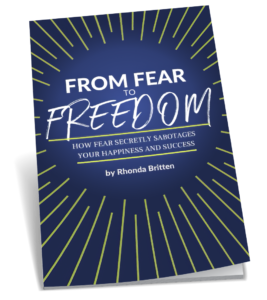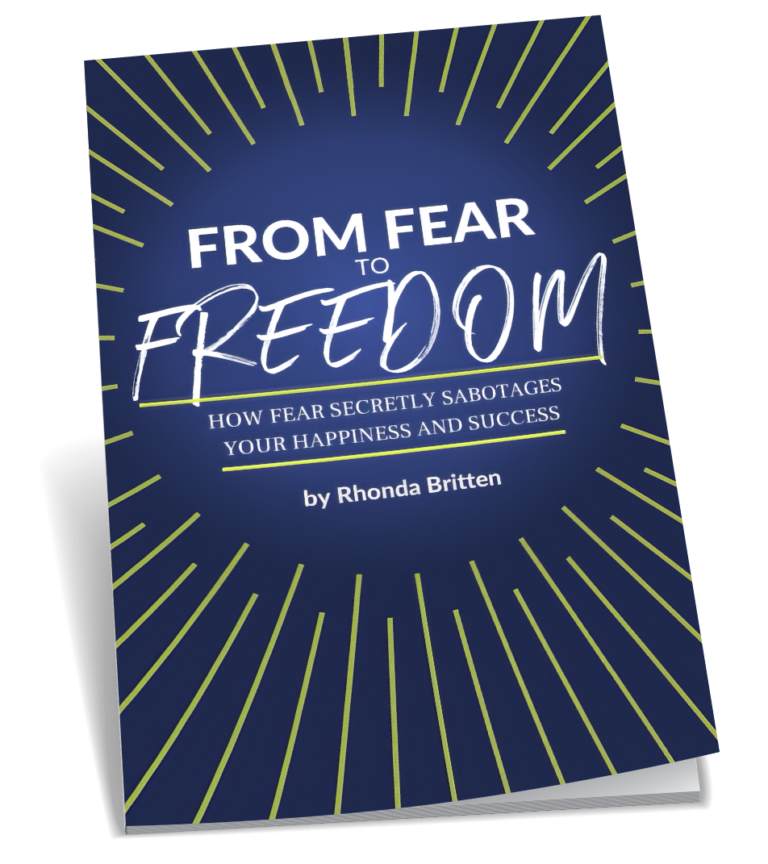Toxic relationships are all around us, and they can be tricky to identify if you don’t know how to recognize them. That’s because a relationship can be toxic in so many ways beyond direct physical or emotional abuse.
You might have a family member who is always criticizing you or shutting down your dreams. You might have a friend who complains non-stop during every interaction. You might have a spouse who refuses to respect your boundaries, even after you’ve laid them out clearly.
Toxic relationships are, well, TOXIC. That’s not a very nice word, is it? What does it remind you of? Poison? Acid? Something that can cause you harm?
EXACTLY!
The relationships in your life define your experience of life.
These are the people you spend time with, the people you confide in, and the people who should support you. You may not realize it, but your relationships could be a big part of why you aren’t happy, aren’t fulfilled, and aren’t taking action on your dreams.

Can you fix a toxic relationship? That’s a tough question to answer, as each relationship is different. I'll cover what you can do to fix toxic relationships and how to know when it’s too late in another article: Is It Possible to Fix a Toxic Relationship? COMING SOON.
In this article, I’ll focus on how to recognize toxic relationships and how to move on from them, including strategies you can use to break free from the toxic relationships that are currently holding you back. Let’s get to it!
How to Recognize a Toxic Relationship
Complaining Buddies
Think about your partner, your friends, acquaintances, or anyone you generally spend time with. What do you talk about? Sure, you probably spend a lot of time talking about the things most people talk about, such as work, family, sports, exercise, what’s on TV, upcoming travel plans, and your shared acquaintances.
Now, what’s the tone of these conversations? Are they positive, or are they overwhelmingly negative?
Do you have relationships where all you do is sit around complaining, whether it be about the state of the world, family members, aspects of your life, or each other? Do you gang up on your shared acquaintances who aren’t around to defend themselves? Do you gossip? Do you complain about your weight or that you never get any help around the house?
We all complain from time to time—everyone needs to vent! But venting is different than complaining.
Venting is a tool used to express your feelings in a safe environment with someone you trust. The process gives you the brain space to find solutions.
Complaining focuses exclusively on what’s NOT working rather than what is or what you can do to make things better. And complaining is addictive.
We all want to be understood. We want respect. We want to be powerful! And, unfortunately, we often complain because we feel powerless. Complaining gives you the illusion of power.
Let me say that again. Complaining gives you the ILLUSION of power. It helps us feel like we have some semblance of control over the situations that make us feel lonely, misunderstood, or unloved. Complaining with someone else makes us feel less alone because they get how crappy things can feel too.
But be careful here. Complaining doesn’t make you feel better. Yes, venting now and again can help us blow off steam, but if all you do is complain, you’re going to feel worse, not better, because everything is perceived as bad. Nothing is working out. Nothing will ever go your way. Everyone is against you.
When you spend all of your time listening to someone complain, that toxicity is going to seep into your own life and mental health, coloring your perception of your life in murky, drab, dirty shades of gray. The sky clouds over. The more someone influences you to focus on the negative, the more negative you will see, until burning your toast or dropping an egg is a sign the world is against you.
This is toxic to your happiness.
If you feel worse after spending time with someone, that’s a clear sign you’re participating in an unhealthy relationship.
And this can be tough to spot because if your friend, partner, family member, etc., isn’t complaining about you but rather everyone and everything else around you, it might even feel nice that you’re not someone they complain about.
It might make you feel special. But if all you ever hear about is how rotten everyone is in the other person’s life, what do you think they’re saying about you when your back is turned?
Complaining buddies may make you feel seen and understood for a while, but all of that negativity is terrible for your wellbeing, ability to grow, and even your immune system!
Critics

Critics might be a little easier to spot. Do you have people in your life who are always putting you down?
For whatever reason, in their eyes, nothing you ever do is good enough. Your path in life is so bizarre to them that rather than be happy for your success, they put you down and tell you you’re not actually successful. They don’t get it. Therefore, it doesn’t exist. Your reality simply doesn’t exist for them.
These people aren’t ready for your success and accomplishments.
They’re putting you down because your happiness challenges them and their understanding of what’s possible. And let’s keep in mind that success doesn’t have to be about finding a dream career and earning hundreds of thousands of dollars. Success might be sticking with a hobby or making it to the gym two or three times a week.
“What, are you so vain you have to go to the gym that much? Can’t you spend your money on something more valuable than a gym membership? Do you really think anyone is still looking at you?”
Does any of this ring a bell? Constant criticism comes from people who aren’t ready to face their fears.
Consciously or unconsciously, they aren’t ready to acknowledge or face their own limiting beliefs. Criticizing you makes them feel safer and more sure of their own decisions. They’re trapped. They’re afraid to grow—and so they want to stifle your own growth as well.
This kind of relationship is toxic to your self-esteem and overall wellbeing. Your partners, friends, and confidants should be building you up, not knocking you down. If you’re in any kind of relationship with someone who only criticizes you, it’s a sign the relationship is toxic. It’s time to reevaluate the relationship you have with your critics.
Boundary Crossers
Do you have relationships with people who are always crossing your personal boundaries?
Your boundaries are guidelines, rules, or limits you create to identify the reasonable, safe, and permissible ways other people can behave around you and interact with you; they also identify how you will respond if someone violates your boundaries.
Our personal boundaries are extremely, extraordinarily, Earth-shatteringly important!
They give us space to be ourselves. They ensure we’re not always people-pleasing and putting everyone else’s needs above our own. Without boundaries, it’s hard for us to tell where we end and the other person begins.
Saying yes to everything and everyone burns us out!
Yet, like me, I’m betting you were taught by your parents from a young age that boundaries are “rude” or “selfish.” I bet you have more than a few people like this in your life; people who tell you you’re being selfish if you say no. They demand your energy and attention whenever they want it, no matter the boundaries you try to build.
They could be people who infringe on your personal space and touch you in a way that makes you feel uncomfortable. They may press you about your personal life. They may demand more of your time than you want or are willing to give. They may ask to borrow money you can’t afford or simply don’t want to part with. They may show up at your house uninvited and without warning after you’ve made it clear you’re not comfortable with that.
Boundary crossers are people who don’t listen to and don’t respect the clear guidelines that you’ve expressed. Now, it’s very possible that you have not yet found the strength to express your boundaries to these people. This is very common, but don’t worry: By the end of this article, I’ll point you to a few strategies you can use to understand, declare, and defend your own personal boundaries.
Abusers
Abuse can come in many forms. While physical and/or sexual abuse is the most obvious and the most frequently talked about, people can abuse you mentally and emotionally as well.
Regardless of the specific form of abuse you’re experiencing in your relationship, all forms are toxic.
Abusive relationships could blend each of the previous forms of toxic relationships together. Your boundaries are being crossed, and you’re being criticized, and you’re being made to feel like the person you’re in the relationship with is the only person that’s acceptable for you to be with. They may tell you, directly or indirectly, that no one else will have you. This applies to all relationships, not just romantic ones.
If someone is constantly putting you down, touching you in a way you don’t want to be touched, or being violent toward you, they are toxic partners, and you are in a toxic relationship. Period.
No matter what they tell you, and no matter what kind of negative self-talk is swimming through your mind and poisoning your soul, abuse is not acceptable in any form. No one has the right to speak to you that way, and certainly, no one has the right to use violence against you.
It is a toxic relationship, and you must remove yourself from it as soon as possible.
Of course, that’s easier said than done, especially for toxic relationships that you’ve been in for a very long time.
Next, let’s talk about why it’s so hard to move on from toxic relationships, and then I’ll share strategies you can put into practice immediately to help you get out of and move on from your toxic relationships.
Why Is It So Hard to Move on From a Toxic Relationship?

Well, first off, you may not know the relationship is toxic. But hopefully, the previous examples have helped you understand which relationships in your life are toxic. However, understanding that a relationship is toxic is often not enough to get us to move on from that relationship. After all, how do you let go of a toxic relationship when you still love them?
Folks, it’s not easy. In fact, it’s really, really, REALLY hard. So hard that it probably feels impossible to you right now. But it’s not impossible. Whether it’s a romantic partner, a close friend, or a family member, it’s heart-wrenching to say goodbye to someone you love.
It all goes back to our biological need for belonging.
Our desire and need to have a tribe is so strongly rooted in our evolutionary makeup that it’s actually self-destructive, as it keeps us in bad relationships.
We’re hesitant to end any relationship because long, long ago, when our ancestors were hunters and gatherers, we relied on our tribe to survive. Being alone meant we were in danger. There’s strength in numbers. We’re safer when we’re with other people. No one can hurt us.
This biological need was passed down to us through our DNA. The thought of being alone, of leaving a relationship, still triggers that same survival instinct. Unconsciously, we feel a sense of immediate and irrepressible danger. So we’ll do whatever we can not to be alone. Even though the relationship we’re in is the thing that’s actually causing us harm, it still seems better than the alternative.
I want you to know right now that there’s nothing wrong with you for feeling this way.
These feelings only mean you’re a living, breathing human being. But although it’s natural, it’s still something you must overcome if you are in toxic relationships—if you don’t, you’ll never find true happiness. You’ll never be able to prioritize your own dreams, and you’ll never be able to walk a fearless path. Healthy relationships are key to your wellbeing, and the first step is moving on from your toxic relationships.
How to Move on From a Toxic Relationship
1. Set Clear Boundaries
Remember when we talked about boundaries? While your upbringing and current relationships may be telling you that setting boundaries is selfish, I’m here to tell you boundaries are essential to your emotional, spiritual, and physical health.
You must determine what you’re okay with and what you’re not.
But not only that, you also must determine what the consequences are when someone crosses one of your boundaries.
If you’re not clear about the way people are allowed to communicate and interact with you, they will do so in the way that best suits them. So ask yourself: What are your boundaries? Start by determining which times in the past your boundaries felt violated.
What bothers you about the way people interact with you? Do you often feel overburdened by responsibilities to other people? Do you dislike when your family interferes with your personal life? Do you feel like your spouse doesn’t give you enough space? Do you feel pressured to have sex when you don’t want to? Do your children barge into the room when you try to take a moment to yourself?
Who in your life are you feeling this pressure from? Take time to consider and develop your boundaries, and remember: A boundary doesn’t matter if it doesn’t come with consequences.
If you make it clear to your partner that they cannot call you the B-word anymore, what are the consequences if they do so again? If you make it clear to a friend that they can’t ask to borrow money from you anymore, what’s the consequence if they ask again? If you make it clear to a family member that their constant criticism of you needs to stop, but they keep on criticizing your life path, what consequence will follow?
A consequence might be that you see them less or speak to them about their behavior, or if a boundary is continually crossed, it may mean working to move on from the relationship entirely.
Don’t only think about your boundaries—write them down. Grab a pen and paper or your tablet or any medium you prefer. Write out what your personal boundaries are and what the consequences are if your boundaries are crossed.
By the way, I’m not suggesting any of this is easy. Setting boundaries and standing up for yourself moving forward is really tough. But boundaries are essential to managing and moving on from toxic relationships.
I have so much more to say about boundaries! Once you’ve read this article, check out my guide: Why Personal Boundaries Are Important and How to Develop Them.
2. Find a Non-Toxic Tribe

You don’t need to go it alone. And although moving on from a toxic relationship can be a lonely and impossibly daunting feeling, there are so many people out there (like me!) who understand what you’re going through. We all want to feel accepted. We all want to belong.
I’m not going to sugarcoat it. Letting go of a relationship, or potentially more than one relationship, is so, so, so difficult. And unfortunately, there’s no way around it. But it doesn’t mean you’ll be alone forever. Fill some of the holes left behind by your toxic relationships by finding a new tribe—new champions!
The transition of moving on from your toxic relationships becomes easier as you find non-toxic relationships to help fill the void. People who see you. People who don’t treat you as a personal assistant, exclusively focused on doing their bidding. People who understand how hard it is to move on from a toxic ex or a toxic breakup, whether it was romantic or not.
There are so many people out there who have walked miles in your shoes. People who have been exactly where you are right now. People who have made the difficult choice to let go and move on.
It does involve putting yourself out there. And while it’s hard, you’ll find out what real, healthy relationships feel like.
You’ll feel what it’s like to be listened to and actually HEARD. You will experience relationships and conversations with people who aren’t only waiting for their chance to speak. They are out there. They are RIGHT HERE at Fearless Living.
3. Forgive for Yourself, Not for Them
Often, when you think of forgiveness, I bet you’re thinking about the other person. You think forgiving someone means you have to be buddy-buddy with them, even though they did something horrible to you. You might think forgiveness means you have to invite that person back into your life and move forward, pretending nothing ever happened.
Folks, believe me: I’m not asking you to do any of that. Because forgiveness has nothing to do with the other person. Forgiveness has everything to do with you.
Let me say that again: Forgiveness has everything to do with you.
And trust me when I say I know a thing or two about forgiveness. When I was 14, my father shot and killed my mother right in front of me. Then he turned the gun on himself and fired. In a moment, I lost both my parents. In a moment, I was an orphan. In a moment, my whole life changed.
There’s no way I could forgive my father for what he did, right? Well, folks, it took a very long time, but I did find it in myself to forgive my father. That said, my path of forgiveness is about me and my life.
My choice to forgive my parents for putting me in that situation is about setting myself free from the chains of suffering that dominated my life for two decades. Chains that kept me in the grips of alcoholism. Chains that led me to attempt suicide three times.
Truly, my only way forward was forgiveness. Forgiveness allowed me to let go of my feelings of shame, anger, and resentment, and it helped me turn all of my pain into lessons. And I’m not about to tell you that this was an easy decision. I didn’t snap my fingers and say, “Okay, Rhonda, we’re done with that.” Forgiveness is a process, an ongoing journey of compassion and discovery, and it’s something I’m still working through today.
There’s a lot to unpack when we talk about forgiveness, and I can’t possibly speak about everything in this single article. I encourage you to read my article How to Forgive Even When It Feels Impossible, which covers more of my personal journey with my parents’ death, the benefits of forgiveness, the four stages of forgiveness, and how you can practice forgiveness on a daily basis.
Forgiveness transformed my life, and I know it can do the same for you.
Forgiveness can set you free from your toxic relationships. It’s not easy, and it doesn’t mean you are taking them back or forgetting the pain they caused you, but forgiveness will make room in your heart to move on. Otherwise, you'll be stuck carrying the baggage, anger, hate, resentment, and pain of that toxic relationship even after it’s over.
4. Gray Rock If You Have To

Now, I know it’s not always possible to stop communicating with someone or to cut someone completely out of your life. While you can limit how much time you spend with them, often, there’s no getting around it. These could be parents, siblings, a racist uncle, or a coworker you have to see every day.
And then there are the in-laws. I have a brother-in-law who thinks what I do is, well, let’s just say, not valuable. He doesn’t believe in life coaching, and he likes to make that clear to me whenever I see him.
Once when I visited my sister, he had purchased some books that “debunked” life coaching and insisted on showing them to me. Now, while I couldn’t control his actions, I could control how I responded to them. I listened. I smiled. I nodded. I said, “Well, isn’t that interesting? I’ve never heard about these ideas before. Thanks for sharing them with me!”
He wanted to prove something to me. He wanted to get a rise out of me. He wanted to upset me.
I didn’t give him what he wanted.
When it comes to those relationships you don’t have a say in, it’s up to you to decide how you’re going to react. You have a choice.
You can engage with the person, take the bait, and lose your temper, or you can take a few deep breaths and stay in control. But how do you emotionally detach from a toxic person?
Gray rock is a strategy you can use when you have no choice but to interact with someone. Imagine a rock. Rocks have no feelings or emotions. Whether in rain or shine or a tornado, the rock remains the same—impassive. Does the rock mind that it’s raining? Who knows? The rock doesn’t change, so you can’t tell. Become a rock.
Make all of your interactions with the person as boring and uninteresting as possible. Don’t reveal your emotions. Respond with short, straightforward answers. This will ensure things never escalate.
The person wants you to become emotional because things are more interesting that way. Don’t give them what they want. Don’t feed their need for drama and attention. Eventually, they’ll lose interest and move on. It’s boring talking to a rock!
5. Practice Self-Love

Self-love is the foundation of your Fearless Journey.
Moving on from a toxic relationship is no small feat. Whether you’re still in a toxic relationship, in the process of moving on, or dealing with the aftermath, self-love will help get you through.
Show compassion to yourself because it will be a difficult time in your life.
Think of the compassion you show to the people you care about most in your life. How do you treat them? Turn some of that love toward yourself.
When you’re not loving yourself, you lose that sense of self-respect and self-security. If your security isn’t coming from your inner self, then you have to depend on someone else for it. You’ll look to external factors, which can lead you straight back to old or brand new toxic relationships.
You might express self-love through self-care, keeping a self-love journal, prioritizing your own needs, or spending quality time with yourself. I won’t go on and on about the importance of self-love (because I already have!) You can read my full guide and strategies for self-love here: How To Love Yourself: 7 Self-Love Tips You’ll Love.
You Don’t Have to Go It Alone
Moving on from a toxic relationship is one of the hardest things you’ll ever do. There’s no ifs, ands, or buts about it. It can be extremely difficult to leave your old tribe behind, even if they are toxic. It’s a lonely feeling—but you’re not alone. There is a tribe of like-minded humans right at your fingertips at Fearless You who are all working toward living a life free from fear.
If you’re ready to jump right into changing your present and future, my 10-week Fearless Living Training Program is based on decades of learning how to crack the secret code to fear. With Fearless Living, you’ll learn how to set clear boundaries, forgive, build non-toxic, healthy relationships, and reach your full potential. It’s time to begin living the life your soul intended.™
Follow the Fearless Living blog for more guides, resources, Fearbuster Exercises™, inspiring stories, and more!
Toxic relationships are all around us, and they can be tricky to identify if you don’t know how to recognize them. That’s because a relationship can be toxic in so many ways beyond direct physical or emotional abuse.
You might have a family member who is always criticizing you or shutting down your dreams. You might have a friend who complains non-stop during every interaction. You might have a spouse who refuses to respect your boundaries, even after you’ve laid them out clearly.
Toxic relationships are, well, TOXIC. That’s not a very nice word, is it? What does it remind you of? Poison? Acid? Something that can cause you harm?
EXACTLY!
The relationships in your life define your experience of life.
These are the people you spend time with, the people you confide in, and the people who should support you. You may not realize it, but your relationships could be a big part of why you aren’t happy, aren’t fulfilled, and aren’t taking action on your dreams.

Can you fix a toxic relationship? That’s a tough question to answer, as each relationship is different. I'll cover what you can do to fix toxic relationships and how to know when it’s too late in another article: Is It Possible to Fix a Toxic Relationship? COMING SOON.
In this article, I’ll focus on how to recognize toxic relationships and how to move on from them, including strategies you can use to break free from the toxic relationships that are currently holding you back. Let’s get to it!
How to Recognize a Toxic Relationship
Complaining Buddies
Think about your partner, your friends, acquaintances, or anyone you generally spend time with. What do you talk about? Sure, you probably spend a lot of time talking about the things most people talk about, such as work, family, sports, exercise, what’s on TV, upcoming travel plans, and your shared acquaintances.
Now, what’s the tone of these conversations? Are they positive, or are they overwhelmingly negative?
Do you have relationships where all you do is sit around complaining, whether it be about the state of the world, family members, aspects of your life, or each other? Do you gang up on your shared acquaintances who aren’t around to defend themselves? Do you gossip? Do you complain about your weight or that you never get any help around the house?
We all complain from time to time—everyone needs to vent! But venting is different than complaining.
Venting is a tool used to express your feelings in a safe environment with someone you trust. The process gives you the brain space to find solutions.
Complaining focuses exclusively on what’s NOT working rather than what is or what you can do to make things better. And complaining is addictive.
We all want to be understood. We want respect. We want to be powerful! And, unfortunately, we often complain because we feel powerless. Complaining gives you the illusion of power.
Let me say that again. Complaining gives you the ILLUSION of power. It helps us feel like we have some semblance of control over the situations that make us feel lonely, misunderstood, or unloved. Complaining with someone else makes us feel less alone because they get how crappy things can feel too.
But be careful here. Complaining doesn’t make you feel better. Yes, venting now and again can help us blow off steam, but if all you do is complain, you’re going to feel worse, not better, because everything is perceived as bad. Nothing is working out. Nothing will ever go your way. Everyone is against you.
When you spend all of your time listening to someone complain, that toxicity is going to seep into your own life and mental health, coloring your perception of your life in murky, drab, dirty shades of gray. The sky clouds over. The more someone influences you to focus on the negative, the more negative you will see, until burning your toast or dropping an egg is a sign the world is against you.
This is toxic to your happiness.
If you feel worse after spending time with someone, that’s a clear sign you’re participating in an unhealthy relationship.
And this can be tough to spot because if your friend, partner, family member, etc., isn’t complaining about you but rather everyone and everything else around you, it might even feel nice that you’re not someone they complain about.
It might make you feel special. But if all you ever hear about is how rotten everyone is in the other person’s life, what do you think they’re saying about you when your back is turned?
Complaining buddies may make you feel seen and understood for a while, but all of that negativity is terrible for your wellbeing, ability to grow, and even your immune system!
Critics

Critics might be a little easier to spot. Do you have people in your life who are always putting you down?
For whatever reason, in their eyes, nothing you ever do is good enough. Your path in life is so bizarre to them that rather than be happy for your success, they put you down and tell you you’re not actually successful. They don’t get it. Therefore, it doesn’t exist. Your reality simply doesn’t exist for them.
These people aren’t ready for your success and accomplishments.
They’re putting you down because your happiness challenges them and their understanding of what’s possible. And let’s keep in mind that success doesn’t have to be about finding a dream career and earning hundreds of thousands of dollars. Success might be sticking with a hobby or making it to the gym two or three times a week.
“What, are you so vain you have to go to the gym that much? Can’t you spend your money on something more valuable than a gym membership? Do you really think anyone is still looking at you?”
Does any of this ring a bell? Constant criticism comes from people who aren’t ready to face their fears.
Consciously or unconsciously, they aren’t ready to acknowledge or face their own limiting beliefs. Criticizing you makes them feel safer and more sure of their own decisions. They’re trapped. They’re afraid to grow—and so they want to stifle your own growth as well.
This kind of relationship is toxic to your self-esteem and overall wellbeing. Your partners, friends, and confidants should be building you up, not knocking you down. If you’re in any kind of relationship with someone who only criticizes you, it’s a sign the relationship is toxic. It’s time to reevaluate the relationship you have with your critics.
Boundary Crossers
Do you have relationships with people who are always crossing your personal boundaries?
Your boundaries are guidelines, rules, or limits you create to identify the reasonable, safe, and permissible ways other people can behave around you and interact with you; they also identify how you will respond if someone violates your boundaries.
Our personal boundaries are extremely, extraordinarily, Earth-shatteringly important!
They give us space to be ourselves. They ensure we’re not always people-pleasing and putting everyone else’s needs above our own. Without boundaries, it’s hard for us to tell where we end and the other person begins.
Saying yes to everything and everyone burns us out!
Yet, like me, I’m betting you were taught by your parents from a young age that boundaries are “rude” or “selfish.” I bet you have more than a few people like this in your life; people who tell you you’re being selfish if you say no. They demand your energy and attention whenever they want it, no matter the boundaries you try to build.
They could be people who infringe on your personal space and touch you in a way that makes you feel uncomfortable. They may press you about your personal life. They may demand more of your time than you want or are willing to give. They may ask to borrow money you can’t afford or simply don’t want to part with. They may show up at your house uninvited and without warning after you’ve made it clear you’re not comfortable with that.
Boundary crossers are people who don’t listen to and don’t respect the clear guidelines that you’ve expressed. Now, it’s very possible that you have not yet found the strength to express your boundaries to these people. This is very common, but don’t worry: By the end of this article, I’ll point you to a few strategies you can use to understand, declare, and defend your own personal boundaries.
Abusers
Abuse can come in many forms. While physical and/or sexual abuse is the most obvious and the most frequently talked about, people can abuse you mentally and emotionally as well.
Regardless of the specific form of abuse you’re experiencing in your relationship, all forms are toxic.
Abusive relationships could blend each of the previous forms of toxic relationships together. Your boundaries are being crossed, and you’re being criticized, and you’re being made to feel like the person you’re in the relationship with is the only person that’s acceptable for you to be with. They may tell you, directly or indirectly, that no one else will have you. This applies to all relationships, not just romantic ones.
If someone is constantly putting you down, touching you in a way you don’t want to be touched, or being violent toward you, they are toxic partners, and you are in a toxic relationship. Period.
No matter what they tell you, and no matter what kind of negative self-talk is swimming through your mind and poisoning your soul, abuse is not acceptable in any form. No one has the right to speak to you that way, and certainly, no one has the right to use violence against you.
It is a toxic relationship, and you must remove yourself from it as soon as possible.
Of course, that’s easier said than done, especially for toxic relationships that you’ve been in for a very long time.
Next, let’s talk about why it’s so hard to move on from toxic relationships, and then I’ll share strategies you can put into practice immediately to help you get out of and move on from your toxic relationships.
Why Is It So Hard to Move on From a Toxic Relationship?

Well, first off, you may not know the relationship is toxic. But hopefully, the previous examples have helped you understand which relationships in your life are toxic. However, understanding that a relationship is toxic is often not enough to get us to move on from that relationship. After all, how do you let go of a toxic relationship when you still love them?
Folks, it’s not easy. In fact, it’s really, really, REALLY hard. So hard that it probably feels impossible to you right now. But it’s not impossible. Whether it’s a romantic partner, a close friend, or a family member, it’s heart-wrenching to say goodbye to someone you love.
It all goes back to our biological need for belonging.
Our desire and need to have a tribe is so strongly rooted in our evolutionary makeup that it’s actually self-destructive, as it keeps us in bad relationships.
We’re hesitant to end any relationship because long, long ago, when our ancestors were hunters and gatherers, we relied on our tribe to survive. Being alone meant we were in danger. There’s strength in numbers. We’re safer when we’re with other people. No one can hurt us.
This biological need was passed down to us through our DNA. The thought of being alone, of leaving a relationship, still triggers that same survival instinct. Unconsciously, we feel a sense of immediate and irrepressible danger. So we’ll do whatever we can not to be alone. Even though the relationship we’re in is the thing that’s actually causing us harm, it still seems better than the alternative.
I want you to know right now that there’s nothing wrong with you for feeling this way.
These feelings only mean you’re a living, breathing human being. But although it’s natural, it’s still something you must overcome if you are in toxic relationships—if you don’t, you’ll never find true happiness. You’ll never be able to prioritize your own dreams, and you’ll never be able to walk a fearless path. Healthy relationships are key to your wellbeing, and the first step is moving on from your toxic relationships.
How to Move on From a Toxic Relationship
1. Set Clear Boundaries
Remember when we talked about boundaries? While your upbringing and current relationships may be telling you that setting boundaries is selfish, I’m here to tell you boundaries are essential to your emotional, spiritual, and physical health.
You must determine what you’re okay with and what you’re not.
But not only that, you also must determine what the consequences are when someone crosses one of your boundaries.
If you’re not clear about the way people are allowed to communicate and interact with you, they will do so in the way that best suits them. So ask yourself: What are your boundaries? Start by determining which times in the past your boundaries felt violated.
What bothers you about the way people interact with you? Do you often feel overburdened by responsibilities to other people? Do you dislike when your family interferes with your personal life? Do you feel like your spouse doesn’t give you enough space? Do you feel pressured to have sex when you don’t want to? Do your children barge into the room when you try to take a moment to yourself?
Who in your life are you feeling this pressure from? Take time to consider and develop your boundaries, and remember: A boundary doesn’t matter if it doesn’t come with consequences.
If you make it clear to your partner that they cannot call you the B-word anymore, what are the consequences if they do so again? If you make it clear to a friend that they can’t ask to borrow money from you anymore, what’s the consequence if they ask again? If you make it clear to a family member that their constant criticism of you needs to stop, but they keep on criticizing your life path, what consequence will follow?
A consequence might be that you see them less or speak to them about their behavior, or if a boundary is continually crossed, it may mean working to move on from the relationship entirely.
Don’t only think about your boundaries—write them down. Grab a pen and paper or your tablet or any medium you prefer. Write out what your personal boundaries are and what the consequences are if your boundaries are crossed.
By the way, I’m not suggesting any of this is easy. Setting boundaries and standing up for yourself moving forward is really tough. But boundaries are essential to managing and moving on from toxic relationships.
I have so much more to say about boundaries! Once you’ve read this article, check out my guide: Why Personal Boundaries Are Important and How to Develop Them.
2. Find a Non-Toxic Tribe

You don’t need to go it alone. And although moving on from a toxic relationship can be a lonely and impossibly daunting feeling, there are so many people out there (like me!) who understand what you’re going through. We all want to feel accepted. We all want to belong.
I’m not going to sugarcoat it. Letting go of a relationship, or potentially more than one relationship, is so, so, so difficult. And unfortunately, there’s no way around it. But it doesn’t mean you’ll be alone forever. Fill some of the holes left behind by your toxic relationships by finding a new tribe—new champions!
The transition of moving on from your toxic relationships becomes easier as you find non-toxic relationships to help fill the void. People who see you. People who don’t treat you as a personal assistant, exclusively focused on doing their bidding. People who understand how hard it is to move on from a toxic ex or a toxic breakup, whether it was romantic or not.
There are so many people out there who have walked miles in your shoes. People who have been exactly where you are right now. People who have made the difficult choice to let go and move on.
It does involve putting yourself out there. And while it’s hard, you’ll find out what real, healthy relationships feel like.
You’ll feel what it’s like to be listened to and actually HEARD. You will experience relationships and conversations with people who aren’t only waiting for their chance to speak. They are out there. They are RIGHT HERE at Fearless Living.
3. Forgive for Yourself, Not for Them
Often, when you think of forgiveness, I bet you’re thinking about the other person. You think forgiving someone means you have to be buddy-buddy with them, even though they did something horrible to you. You might think forgiveness means you have to invite that person back into your life and move forward, pretending nothing ever happened.
Folks, believe me: I’m not asking you to do any of that. Because forgiveness has nothing to do with the other person. Forgiveness has everything to do with you.
Let me say that again: Forgiveness has everything to do with you.
And trust me when I say I know a thing or two about forgiveness. When I was 14, my father shot and killed my mother right in front of me. Then he turned the gun on himself and fired. In a moment, I lost both my parents. In a moment, I was an orphan. In a moment, my whole life changed.
There’s no way I could forgive my father for what he did, right? Well, folks, it took a very long time, but I did find it in myself to forgive my father. That said, my path of forgiveness is about me and my life.
My choice to forgive my parents for putting me in that situation is about setting myself free from the chains of suffering that dominated my life for two decades. Chains that kept me in the grips of alcoholism. Chains that led me to attempt suicide three times.
Truly, my only way forward was forgiveness. Forgiveness allowed me to let go of my feelings of shame, anger, and resentment, and it helped me turn all of my pain into lessons. And I’m not about to tell you that this was an easy decision. I didn’t snap my fingers and say, “Okay, Rhonda, we’re done with that.” Forgiveness is a process, an ongoing journey of compassion and discovery, and it’s something I’m still working through today.
There’s a lot to unpack when we talk about forgiveness, and I can’t possibly speak about everything in this single article. I encourage you to read my article How to Forgive Even When It Feels Impossible, which covers more of my personal journey with my parents’ death, the benefits of forgiveness, the four stages of forgiveness, and how you can practice forgiveness on a daily basis.
Forgiveness transformed my life, and I know it can do the same for you.
Forgiveness can set you free from your toxic relationships. It’s not easy, and it doesn’t mean you are taking them back or forgetting the pain they caused you, but forgiveness will make room in your heart to move on. Otherwise, you'll be stuck carrying the baggage, anger, hate, resentment, and pain of that toxic relationship even after it’s over.
4. Gray Rock If You Have To

Now, I know it’s not always possible to stop communicating with someone or to cut someone completely out of your life. While you can limit how much time you spend with them, often, there’s no getting around it. These could be parents, siblings, a racist uncle, or a coworker you have to see every day.
And then there are the in-laws. I have a brother-in-law who thinks what I do is, well, let’s just say, not valuable. He doesn’t believe in life coaching, and he likes to make that clear to me whenever I see him.
Once when I visited my sister, he had purchased some books that “debunked” life coaching and insisted on showing them to me. Now, while I couldn’t control his actions, I could control how I responded to them. I listened. I smiled. I nodded. I said, “Well, isn’t that interesting? I’ve never heard about these ideas before. Thanks for sharing them with me!”
He wanted to prove something to me. He wanted to get a rise out of me. He wanted to upset me.
I didn’t give him what he wanted.
When it comes to those relationships you don’t have a say in, it’s up to you to decide how you’re going to react. You have a choice.
You can engage with the person, take the bait, and lose your temper, or you can take a few deep breaths and stay in control. But how do you emotionally detach from a toxic person?
Gray rock is a strategy you can use when you have no choice but to interact with someone. Imagine a rock. Rocks have no feelings or emotions. Whether in rain or shine or a tornado, the rock remains the same—impassive. Does the rock mind that it’s raining? Who knows? The rock doesn’t change, so you can’t tell. Become a rock.
Make all of your interactions with the person as boring and uninteresting as possible. Don’t reveal your emotions. Respond with short, straightforward answers. This will ensure things never escalate.
The person wants you to become emotional because things are more interesting that way. Don’t give them what they want. Don’t feed their need for drama and attention. Eventually, they’ll lose interest and move on. It’s boring talking to a rock!
5. Practice Self-Love

Self-love is the foundation of your Fearless Journey.
Moving on from a toxic relationship is no small feat. Whether you’re still in a toxic relationship, in the process of moving on, or dealing with the aftermath, self-love will help get you through.
Show compassion to yourself because it will be a difficult time in your life.
Think of the compassion you show to the people you care about most in your life. How do you treat them? Turn some of that love toward yourself.
When you’re not loving yourself, you lose that sense of self-respect and self-security. If your security isn’t coming from your inner self, then you have to depend on someone else for it. You’ll look to external factors, which can lead you straight back to old or brand new toxic relationships.
You might express self-love through self-care, keeping a self-love journal, prioritizing your own needs, or spending quality time with yourself. I won’t go on and on about the importance of self-love (because I already have!) You can read my full guide and strategies for self-love here: How To Love Yourself: 7 Self-Love Tips You’ll Love.
You Don’t Have to Go It Alone
Moving on from a toxic relationship is one of the hardest things you’ll ever do. There’s no ifs, ands, or buts about it. It can be extremely difficult to leave your old tribe behind, even if they are toxic. It’s a lonely feeling—but you’re not alone. There is a tribe of like-minded humans right at your fingertips at Fearless You who are all working toward living a life free from fear.
If you’re ready to jump right into changing your present and future, my 10-week Fearless Living Training Program is based on decades of learning how to crack the secret code to fear. With Fearless Living, you’ll learn how to set clear boundaries, forgive, build non-toxic, healthy relationships, and reach your full potential. It’s time to begin living the life your soul intended.™
Follow the Fearless Living blog for more guides, resources, Fearbuster Exercises™, inspiring stories, and more!







